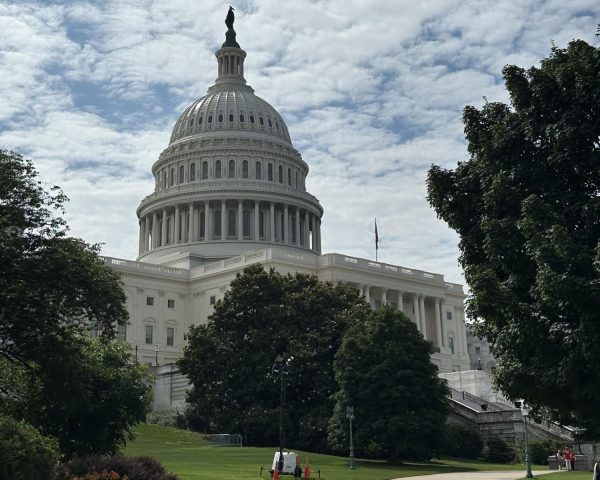Fordham Makes Changes to Hybrid/Remote Policy
Fordham announced changes to the hybrid/remote policy which was put into place at the start of the COVID-19 pandemic. In a change from the previous policy, Fordham employees are expected to be on-campus unless under “extraordinary circumstances” which would make it impossible for them to be present on campus.
The hybrid/remote work policy is easily accessible through the Fordham website under HR Policies and Guides. Upon looking at the updated policy, Fordham recognizes in their policy statement that, although it will be granted rarely, hybrid and remote work includes advantages like increased productivity and performance, cost reduction, crisis response and greater work-life balance.
When looking further into what the policy actually looks like in practice, one is directed towards sections four (Definitions) through nine (Termination of Hybrid/Remote Work) of the policy. The definitions portion is relatively straight forward. Hybrid work means “working from an assigned campus work location for a minimum number of days during a work week and from an off-site location for the remaining workdays of the week on a regular basis.” Whereas, remote work “means working from an off-site location all days of the week on a regular basis.”
The fifth section explains the “Guiding Principles” to a hybrid/remote work arrangement, outlining the expectation for arrangements to be made by the supervisor and employee to determine the days where a hybrid employee would be expected to work in-person, typically three days per week.
Further, this section highlights that “the work arrangement is revocable and can be discontinued at any time, when, in the judgment of the supervisor, it is in the best interest of the university to do so.” Such a termination of agreement is emphasized again in sections eight and nine, where the university maintains their right to require an employee to return to in-person work at anytime.
At the heart of this policy’s importance to professors and students are sections six and seven which outline the eligibility requirements and approval process necessary for employees seeking a hybrid/remote work arrangement.
In a change from previous policy, it is now incredibly unlikely for employees in people-facing positions to be eligible, saying that, “generally, positions with significant face-to-face in-person interactions or that require regular access to onsite confidential documents may not be suitable for hybrid/remote work.” What this means for professors and students alike is that courses are expected to be fully in-person without exceptions to COVID-19 and social distancing concerns.
However, despite the change in policy to “pre-COVID-19” expectations, it appears that professors are not opposed. Professor Allan Gilbert of the Anthropology and Sociology Department at Fordham Rose Hill concurs with the policy, citing that the high costs of student attendance should mean a school structure that encourages on-campus activity and culture. The last two years have taught university students and professors alike to adapt to fully remote and hybrid learning environments, but the general consensus is that an in-person education benefits the vast majority of students.
A further sentiment expressed by Professor Gilbert is an emphasis on equity, stating that he would prefer to teach remotely only when absolutely necessary (snow storm, flood, personal health impediment) and if all of his students had equal access to materials necessary for online learning. The pandemic exposed a great deal of inequity among the student population, and in-person learning allows for students to have access to on-campus resources they may otherwise not have in a remote learning environment.
Professors, now equipped with the knowledge of what a fully remote, hybrid and in-person class looks like, are better able to determine how to adapt to Fordham’s new policies. As a result, how classes are taught in-person could look different than before the pandemic, with lessons being able to adapt to temporary remote options when necessary.
Remote learning has offered students access to education when they otherwise would not have during the pandemic, but there appears to be a greater desire to learn and socialize in a traditional classroom and campus environment echoed by both students and professors at Fordham University. The new hybrid/remote learning policy reflects that desire to be in-person while maintaining some options for faculty to continue to work remotely.
As the start of the semester commences, faculty departments will be meeting and likely discussing their own plans to determine how to approach hybrid and remote learning options for their staff.
The university will post updates regarding any changes to the policy or adjustments for faculty and students alike.











































































































































































































